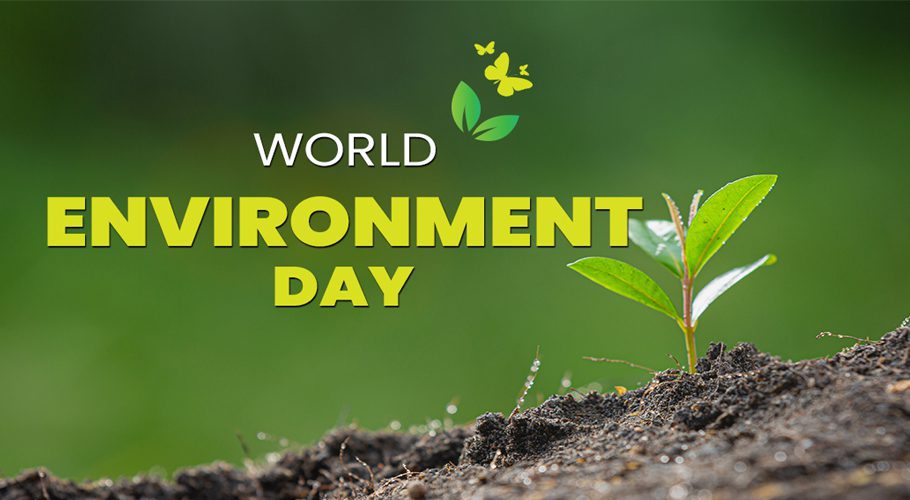World Environment Day is being observed on Saturday (today) globally to spread worldwide awareness on environmental issues. Almost over 150 countries participate each year in the event to take action on significant environmental challenges the planet faces.
History
World Environment Day is the most renowned day for environmental action. Since 1974, it has been celebrated every year on 5 June. The day engages governments, businesses, celebrities and citizens to focus their efforts on a pressing environmental issue.
It has been a flagship campaign for raising awareness on emerging from environmental issues to marine pollution, human overpopulation, and global warming, to sustainable consumption and wildlife crime.
The theme of the day
This year’s observance of World Environment Day will be on the theme of “ecosystem restoration” and focus on resetting our relationship with nature. The day will be celebrated across the world through various events and activities, in line with the latest Covid-19 regulations.
Pakistan’s efforts
World Environment Day 2021 is being hosted by Pakistan. As host of World Environment Day, Pakistan will highlight environmental issues and showcase the country’s own initiatives and its role in global efforts.
Led by Prime Minister Imran Khan, Pakistan is fully committed to playing a leadership role in addressing the issue of climate change through various projects and initiatives. The day will also mark the formal launch of the UN Decade on Ecosystem Restoration 2021-2030.
The main event in Pakistan will be held at the Jinnah Convention Centre in Islamabad where the official activities will be inaugurated by Prime Minister Imran Khan and live-streamed across the globe through official and social portals.
The prime minister would formally announce the achievements of the first billion trees plantation target under the flagship Ten Billion Tree Tsunami Plantation (TBTTP) project and meeting the recent Bonn Challenge pledge.
He will also announce the successful restoration of 0.3 million hectares of forest cover in Khyber Pakhtunkhwa, 15 national parks along with marine protected area established under the Protected Areas Initiative, and finally the Green Financing Initiative introduced by Pakistan for Ecosystem Restoration Fund.
Ten Billion Trees Tsunami
Pakistan has recently kicked off a country-wide “10 Billion Trees Tsunami” campaign aimed to counter climate change through a massive afforestation drive.
This step carried out with a strategic approach, especially in the tree species planted, it improved the safety and wellbeing of the people manifold, including vitally important flood prevention.
This campaign kicked off from the 2014 “Billion Trees Tsunami” afforestation drive that was launched by the provincial government of Khyber Pakhtunkhwa (KPK) as a way to counter the effects of droughts, cloudbursts and storms in that Himalayan region, all worsened by climate change.
Adverse impacts of the climate change
According to the latest special report of the Intergovernmental Panel on Climate Change (IPCC), global average temperature change above pre-industrial level is projected to overshoot the 1.5 degrees Celcius mark by some amount well before the end of this century unless urgent steps are taken.
Pakistan has been consistently ranked among the ten countries worst affected by climate change. The increased frequency and intensity of extreme climate events during the last two decades in Pakistan, has had serious and long-term adverse impacts on the country.
Available data suggest that the Hindu Kush Himalayas is heating up at a rate faster than the global average, causing an increase in melting rates of Pakistan’s seasonal snow cover and some low elevation glaciers.
If accompanied by an intense rainfall event, this can lead to extreme flash flooding, debris flow or glacial lake outburst flood (GLOF), the likes of which have recently been experienced more frequently in the highlands of the country.
Collective efforts needed to tackle the issue
Undoubtedly, climate change is the most threatening problem of our time and an issue without a vaccine. There is no short-cut solution except enhanced, supportive and coordinated global climate action. It is imperative that developing countries are supported with improved climate finance, supportive aptitude building and appropriate technology transfer.
Pakistan remains completely committed to playing a leadership role in addressing the issue of climate change and making a shift towards a “Clean and Green” Pakistan through a well-articulated climate change agenda consisting of a number of on-the-ground flagship initiatives.
Pakistan stands ready and committed to not only plays its role in furthering global efforts to combat this menace but also lead the way with real on-the-ground solutions.
As one of the most climate-susceptible countries, Pakistan also needs to embark on low carbon and climate compatible development. The government must develop an inclusive framework linking its mitigation efforts to its industrial, agricultural and energy-related strategies and implement it to reverse the impact of fast-changing climatic conditions.
It is our individual as well as collective duty, to make adequate joint efforts to help rehabilitate and protect our environment, and do our part in healing this ailing planet.



































